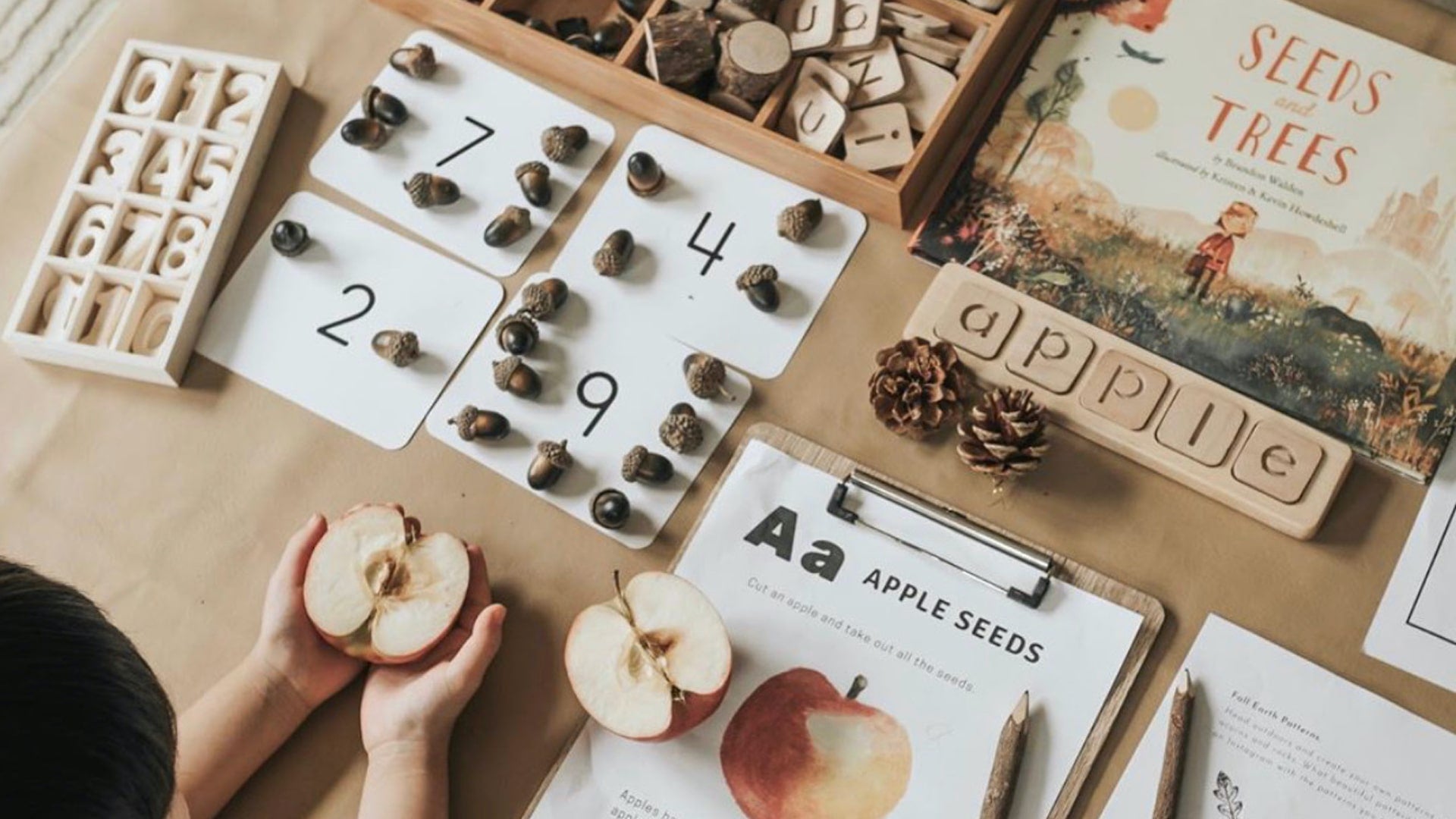
Sorry about the mess, but we're learning here!
Have you been scrolling through the gram, seeing lots of little people getting their hands nice and dirty as they play? Or maybe you're seeing lots of creative parents posting about the latest activities they've kept their children entertained with during iso.
From birth through to early childhood, children are using their senses to explore their surroundings and to make sense of the world around them. They do this by touching, tasting, smelling, seeing, moving and hearing. And so, with this in mind, we want to introduce our LOUIE MEETS LOLA community to sensory play!
The Theory of Sensory Play
The theory of play – also known as developmental stage theory – was first conceptualised by Jean Piaget (Developmental Psychologist). Specifically, Piaget adopted the position that “play” involves a systematic process of learning that can be identified by stages and accordingly, proposed that children need environmental stimuli and experiences to guide their cognitive development. In this way, he argued that sensory play is key to a child’s brain development in that these experiences stimulate our child’s senses, which in turn strengthens their brain and creates neurological pathways which are important for learning.
Even as adults, it has been argued that we learn best and retain more information when we engage our senses. Have you ever been taken back in time to one of your favourite memories by encountering a familiar smell? Similarly, you may hear a song which you haven’t heard in years but you remember the lyrics you memorised with your childhood friend. This is because our sense of smell and hearing have been stimulates with something familiar whereby our brain triggers a flashback memory to those special times.
Piaget’s perception of sensory play builds on the above and states that these interactions and experiences contributed to a child’s ability to complete more complex learning asks and supports cognitive growth, language development, fine and gross motor skills, social interaction and problem solving skills.

What Is Sensory Play?
Sensory play is the ability to take in information through the senses of touch, smell, taste, vision, hearing and movement, and to combine the resulting perceptions with prior information, memories, and knowledge already stored in the brain. Put simply – it involves our children learning by exploring and discovering by using their five senses and movement.
Sensory activities facilitate exploration and naturally encourage children to use scientific processes while they play, create, investigate and explore. The sensory activities allow children to refine their thresholds for different sensory information helping their brain to create stronger connections to process and respond to sensory information.
For example, let’s take a little fussy eater who struggles with the texture of food – namely, spaghetti. By employing the use of sensory play, the child can touch, smell and play with the texture of spaghetti with little expectation. As the child develops trust and understanding of this texture it helps build positive pathways in the brain to say it is safe to engage with this food. In this way, sensory play can help shape what children believe to be positive and safe in the brain, which can in turn shape their choices and guide behavior.
Niamh On Sensory Play
“Hello my name is Niamh and I’m a mother to a cheeky, happy 16 month old girl named Livvy. I’m a Chef and have been one for 15 years – so when it comes to sensory, it’s safe to say that taste and messy play is our favourite!
When I create things for sensory play, especially food related, I always try to make it taste safe as Livvy still likes to put everything in her mouth. Some of the fun things we have done are Aquafaba (chickpea juice) foam dig, chia slime sensory bin, rainbow coloured coconut, homemade playdough shaping, coloured oats and dinosaur jelly dig. I also make sensory bags and glitter bottles too.
I believe that the best sensory experiences for our kids are the ones where they can just be themselves, have fun in exploring and be free in play.
#comeeatandplaywithme
Niamh & Livvy”
5 Reasons Why Sensory Play Is Important:
- Research shows that sensory play builds nerve connections in the brain’s pathways, which lead to the child’s ability to complete more complex learning tasks.
- Sensory play supports language development, cognitive growth, fine and gross motor skills, problem solving skills, and social interaction.
- This type of play aids in developing and enhancing memory
- Sensory play is great for calming an anxious or frustrated child
- This helps children learn sensory attributes (hot, cold, sticky, dry)
________________________________________________________
We are so grateful to beautiful Niamh and Livvy who have been kind enough to give us a snippet into their yummy food and play, and have allowed us to share this with YOU!
If you would like to connect with Niamh, to gain ideas on yummy recipes for your little one or activities for sensory play, you can follow her on Instagram below:
Stay tuned next week for more story time.
Always,
Louie Meets Lola x




Leave a comment
This site is protected by hCaptcha and the hCaptcha Privacy Policy and Terms of Service apply.